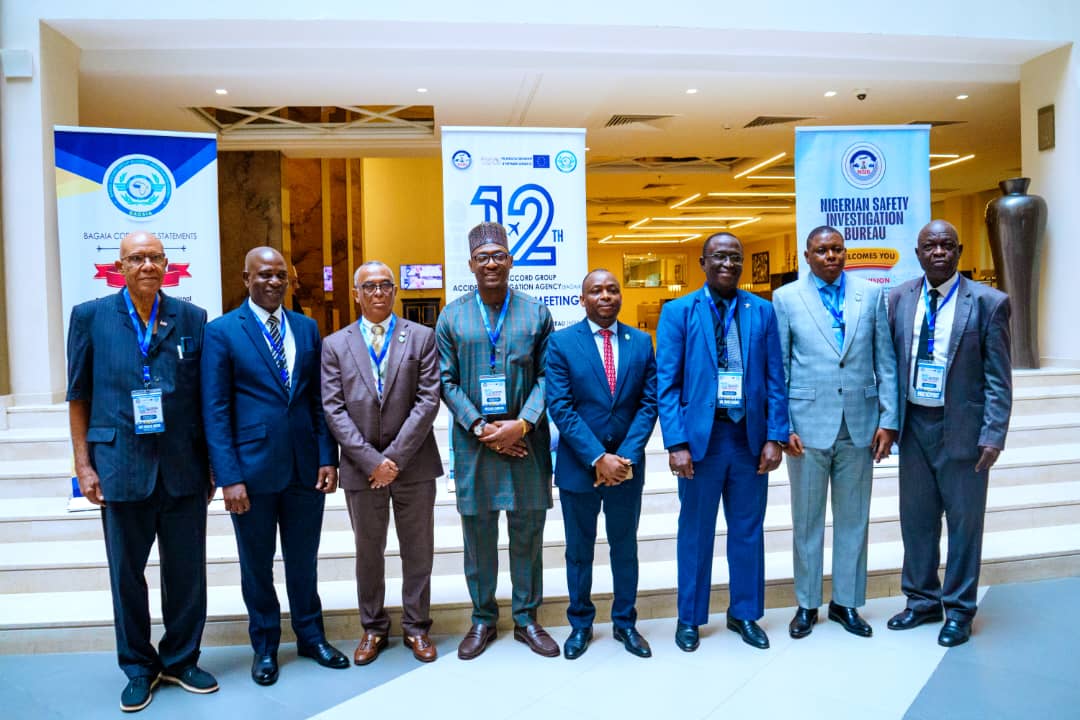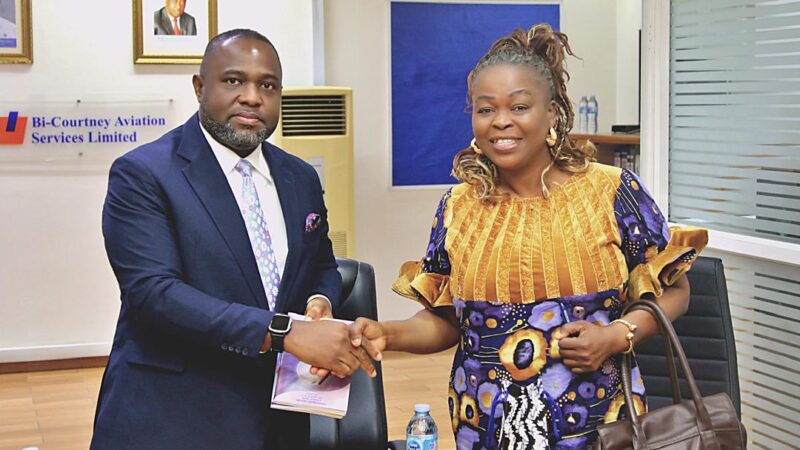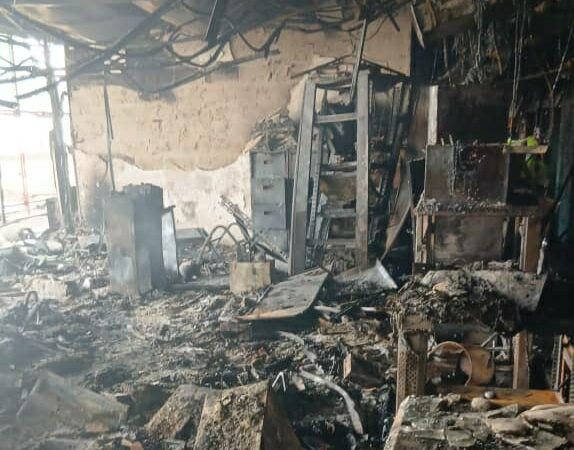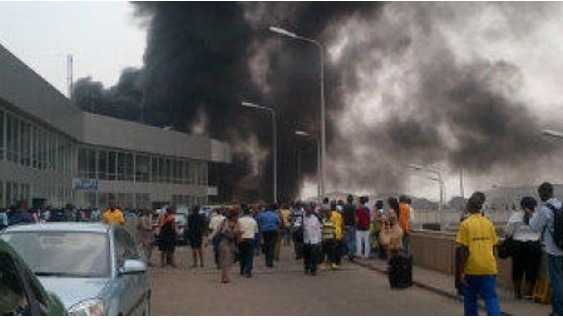BAGAIA Reaffirms Regional Aviation Safety Commitment as 12th Commission Meeting Opens in Abuja

The 12th Commission Meeting of the Banjul Accord Group Accident Investigation Agency (BAGAIA) has officially commenced in Abuja, Nigeria, with member states reaffirming their collective commitment to strengthening aviation safety through enhanced regional collaboration.
The meeting, which brought together representatives from Nigeria, Ghana, The Gambia, Liberia, Cape Verde, and Sierra Leone, marked a major milestone with the formal establishment of the BAGAIA Board.
Composed of the heads of Accident Investigation Bureaus from each member state, the new Board is expected to provide strategic policy direction and streamline decision-making within the agency. A Chairman will be elected from among the members, while the BAGAIA Commissioner will serve as Secretary to the Board.
The legal instrument establishing the Board was signed in English by five member states during the Council of Ministers meeting on 22 May 2025 and has now taken full effect.
French and Portuguese translations are expected to be ratified during the 42nd Session of the International Civil Aviation Organization (ICAO) Council in Montreal in September 2025.
In his opening remarks, BAGAIA Commissioner, Engr. Charles Irikefe Erhueh, highlighted the agency’s progress in fostering integration and synergy across West Africa.
He noted that recent strategic alignments with regional bodies such as the East African CASSOA in 2023 and the Southern African SASO in 2024 have broadened BAGAIA’s influence beyond its traditional sphere.
“Our efforts at unifying the region through shared safety goals are yielding results,” Erhueh said. “However, funding remains a significant hurdle. Inconsistent financial contributions from member states have constrained progress. Yet, the resolve to grow together and share knowledge remains strong.”

Also speaking at the opening was Mr Fansu Bojang, Head of the Banjul Accord Group Secretariat and Director General of the Gambia Civil Aviation Authority. Bojang urged participants to refocus their energies on the agency’s objectives.
“Let us recalibrate our focus and put the agency’s interests at the forefront,” Bojang charged. “This meeting must enhance both individual and collective contributions. We expect nothing less.”
He also assured of the BAG Secretariat’s sustained partnership with BAGAIA to ensure effective execution of its mandate.
Representing the host country, Captain Alex Badeh Jr, Director General of the Nigerian Safety Investigation Bureau (NSIB), welcomed delegates warmly and emphasised the urgency of cross-border cooperation.
“Cooperation among member states is not just a goal but the foundation of our success,” Badeh stated. “Aviation incidents transcend borders and demand seamless collaboration.”
He cited Nigeria’s technical assistance to Liberia’s Aircraft Accident Investigation Bureau and the country’s ongoing support to Ghana in establishing a flight data analysis laboratory as testaments to BAGAIA’s strength in capacity building.
“We are celebrating collective wins today,” he added. “They showcase our dedication to building safer skies through knowledge sharing and mutual support.”
Badeh also called for a proactive approach to addressing modern aviation threats, including bird strikes, operational hazards, and emerging technologies. He urged member states to approach the discussions with openness and a shared sense of responsibility.
Delivering remarks on behalf of the European Union Aviation Safety Agency (EASA), Mr Yves Koning, Regional Manager for Sub-Saharan Africa, commended the theme of the meeting – “Celebrating Our Collective Wins in Capacity Building and Aviation Safety in the BAG Region and Beyond” – as both timely and inspiring.
“Our work is not just technical, but deeply collaborative and transformative,” Koning said. “We’ve made great strides in harmonising standards and strengthening investigation capacity.”
He revealed that the EU-funded technical support project for BAGAIA would conclude on 31 July 2025 but assured stakeholders that the partnership would continue.
“This is a key moment to reflect on achievements, confront persistent challenges, and guide the future of regional aviation safety cooperation,” he said, pledging to share a detailed impact report and future strategies during the technical sessions.
Over the next several days, the Abuja meeting will feature detailed performance reviews, technical discussions, and strategic planning. Key focus areas include funding strategies, investigative coordination, the establishment of regional laboratories, and advanced training programmes for air accident investigators.
This 12th Commission Meeting signifies a renewed commitment among BAGAIA member states to uphold aviation safety standards and foster collaborative growth.
As discussions continue, stakeholders are expected to formulate new resolutions that will chart the future of aviation safety across the West African region and beyond.







